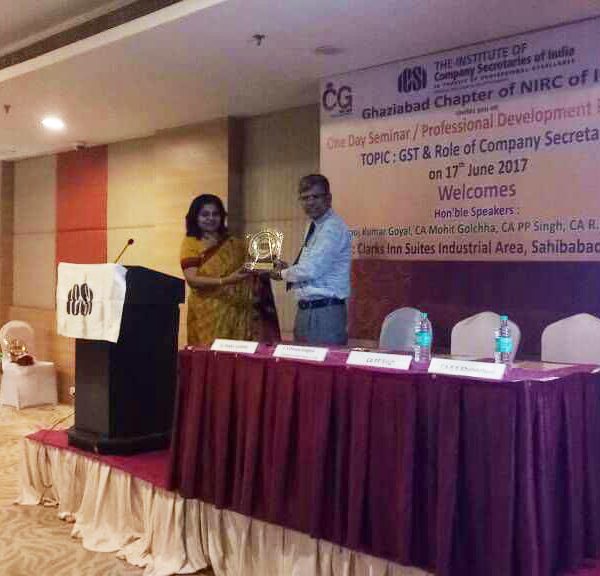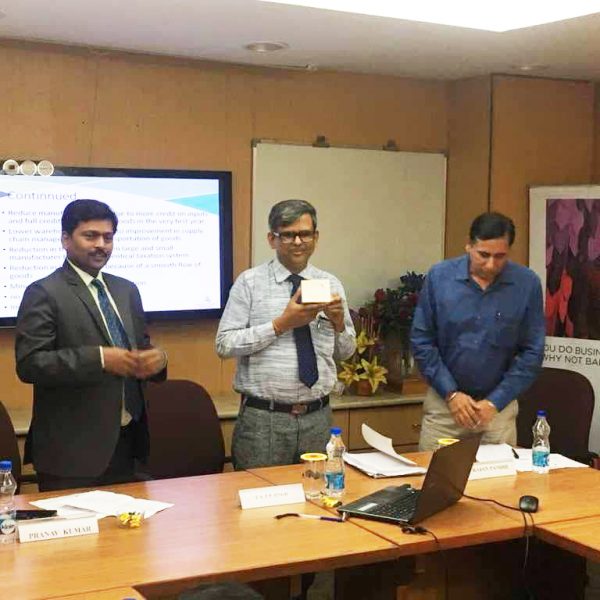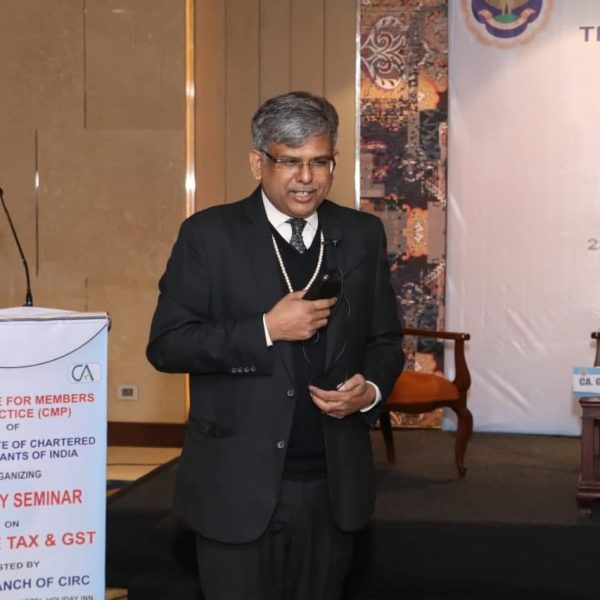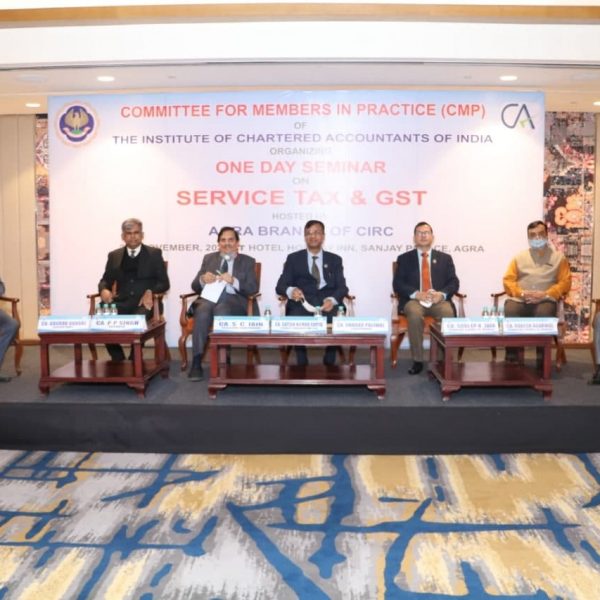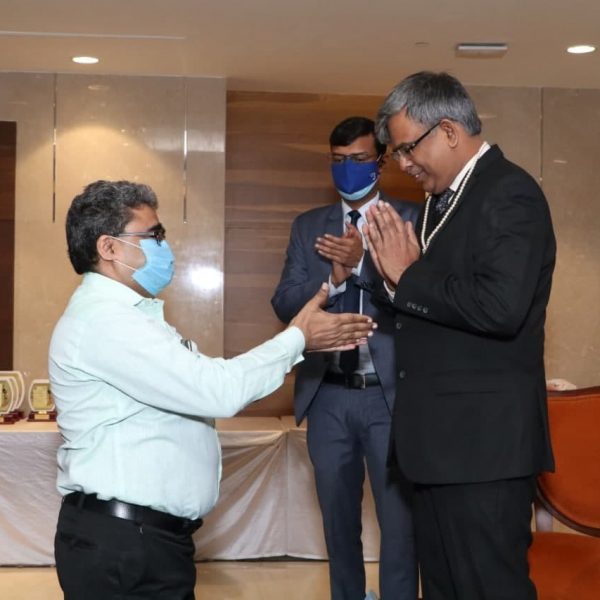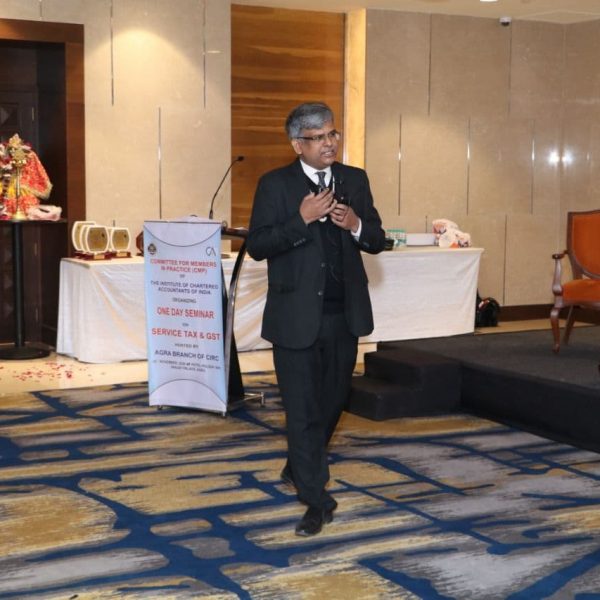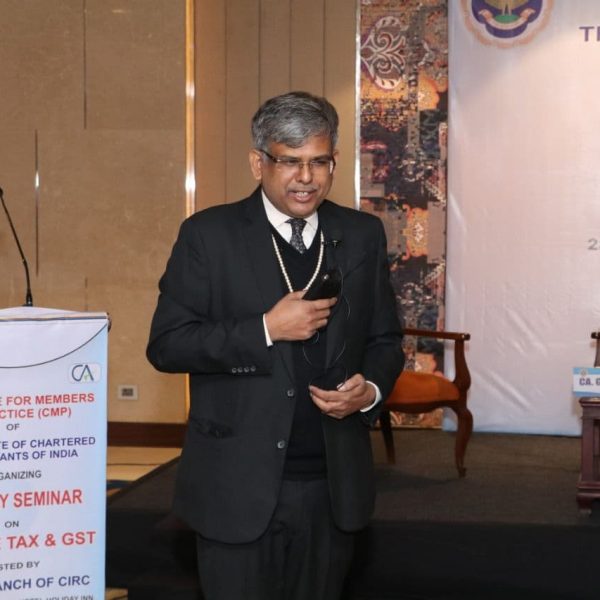Legal obligations of representative assessee on death of individual under income tax
Introduction: Can death of an individual tax payer means relax from all tax liabilities and compliances like filing of ITR, payment of tax , interest , reply to notices, assessment/ reassessments ? whether any remedy available against incorrect demand of tax like filing of appeal etc.? whether notices could be issued to deceased individual or someone else ? if yes, who has obligation to pay tax, interest etc. or who has to make compliances like filing of ITR in respect of income of deceased and who is entitled to file appeal against incorrect order or entitled to refund of excess tax paid by deceased? this article has made effort to answer these questions.
Liabilities of legal representative:
| ITR not filed
|
Legal representative(s) to file ITR
|
| ITR filed assessment not initiated
|
AO has to bring Legal representative(s) to comply notices and reply
|
| Notice issued but not complied | Legal representative(s) to file ITR under section 142/148 or other compliances
|
| Assessment open but not completed
|
Legal representative(s) to comply notices and reply
|
| Assessed but demand not paid
|
Legal representative(s) liable to pay tax if not aggrieved by order otherwise appeal.
|
Liabilities of legal representative to pay dues of deceased: Where a person dies, his legal representative shall be liable to pay any sum which the deceased would have been liable to pay if he had not died, in the like manner and to the same extent as the deceased.[S-159(1)]
As per section 2(29) legal representative” has the meaning assigned to it in clause (11) of section 2 of the Code of Civil Procedure, 1908.
As per section 2(11) legal representative” means a person who in law represents the estate of a deceased person, and includes any person who intermeddles with the estate of the deceased and where a party sues or is sued in a representative character the person on whom the estate devolves on the death of the party so suing or sued.
Note: Definition as per CPC is wide and inclusive one and here legal representative is not only legal heir but also executor, legatee and administrator in possession of estate of deceased without being any title as legal heir but seek to represent the estate of deceased. Agent holding power of attorney from the executor of a deceased person is a legal representative. Class –I heir u/s 8 of the Hindu succession Act 1956 is also legal representative.
Liabilities of legal representative to pay dues of deceased: Every legal representative shall be personally liable for any tax payable by him in his capacity as legal representative if, while his liability for tax remains undischarged, he creates a charge on or disposes of or parts with any assets of the estate of the deceased, which are in, or may come into, his possession, but such liability shall be limited to the value of the asset so charged, disposed of or parted with.[S-159(4)]
Limited liabilities of legal representative: The liability of a legal representative under this section shall, subject to the provisions of sub-section (4) and sub-section (5), be limited to the extent to which the estate is capable of meeting the liability. .[S-159(6)]
Estate: The estate of a deceased person is the bundle of rights, powers, immunities and liabilities which survive him. With reference to a living person, “estate” means the interest he has in lands and other subjects of property ; it designates property, real or personal, in which he has a right or interest. The degree, quantity, nature and extent of interest which he has in property is his “estate”, signifying everything of which riches or fortune may consist. The aggregate of a man’s proprietary rights constitutes his estate, as distinct from those rights which are often called personal and which determine his status. Proprietary rights are valuable and are always worth something; they may be jus in rem or jus in personam; rights of either sort are proprietary, if they are the elements of a man’s wealth which he can dispose of at his pleasure, or pass on to others.[B. Rajeevi R. Hegde vs Addl. Agricultural Income-Tax 1981 127 ITR 855 Ker HC]
Proceeding/ ITR:
- Survival and continuation of assessment/ income escaping assessment proceedings against the deceased, continue in the name of legal representative
- Demand, recovery proceedings or any other proceedings continue against the legal representative
- Filing of ITR, statement etc. by legal representative
- The legal representative of the deceased shall, for the purposes of this Act, be deemed to be an assessee.[S-159(3)]
Right of representative assessee to recover tax paid (section 162) :
(1) Every representative assessee who, as such, pays any sum under this Act, shall be entitled to recover the sum so paid from the person on whose behalf it is paid, or to retain out of any moneys that may be in his possession or may come to him in his representative capacity, an amount equal to the sum so paid.
(2) Any representative assessee, or any person who apprehends that he may be assessed as a representative assessee, may retain out of any money payable by him to the person on whose behalf he is liable to pay tax (hereinafter in this section referred to as the principal), a sum equal to his estimated liability under this Chapter, and in the event of any disagreement between the principal and such representative assessee or person as to the amount to be so retained, such representative assessee or person may secure from the Assessing Officer a certificate stating the amount to be so retained pending final settlement of the liability, and the certificate so obtained shall be his warrant for retaining that amount.
(3) The amount recoverable from such representative assessee or person at the time of final settlement shall not exceed the amount specified in such certificate, except to the extent to which such representative assessee or person may at such time have in his hands additional assets of the principal.
Remedies available to AO against property vested or in the control of representative assessee. (section 167)
The Assessing Officer shall have the same remedies against all property of any kind vested in or under the control or management of any representative assessee as he would have against the property of any person liable to pay any tax, and in as full and ample a manner, whether the demand is raised against the representative assessee or against the beneficiary direct.
Computation of income of the deceased:
As a legal heir, you have to file the return on behalf of the deceased for income till the date of death.
Computation of the income of the deceased from the start of the financial year till the date of death, and thereby the tax payable on it in the same manner as if the deceased was alive for all the five heads of income including business income , rental income, capital gain, otter sources on the basis of invoice issued of supply made, bank Statements, investments and other relevant documents necessary for deduction and investments made and income tax calculation.
Income earned after the date of death from the assets inherited from the deceased is taxable in the hands of the legal heir.
Legal heir should include income inherited from the deceased in his own income while filing own income tax return.
Illustrations –
“N” who has a rental income of Rs 30,000 per month and interest income of Rs 10,000 per month dies on 20th Sep 2017. Her legal heir needs to file the return on behalf of “N” for the period 1st April 2020 to 20th Sep 2020.
The income to be included in the return of “N” to be filed by legal heir would be :
| Income from House Property Rental Income (From 1st April 2020 to 20th Sep 2020) | ₹30000*5 months & 20 days | ₹ 1,70,000 |
| Income from other Sources Interest Income (From 1st April 2020 to 20th Sep 2020) | ₹ 10000*5months & 20 days | ₹ 56,667 |
“N” who has a rental income of Rs 30,000 per month and interest income of Rs 10,000 per month dies on 20th Sep 2017. Her legal heir needs to file the return on behalf of “N” for the period 1st April 2020 to 20th Sep 2020.
The income to be included in the return of legal heir to be filed by him/her would be :
| Income from House Property Rental Income (From 1st April 2020 to 20th Sep 2020) | ₹30000*6 months & 10 days | ₹ 1,90,000 |
| Income from other Sources Interest Income (From 1st April 2020 to 20th Sep 2020) | ₹ 10000*6months & 10 days |
₹ 63,333 |
Tax liability of the deceased- to be paid by the legal heir:
The legal heir is responsible for paying taxes liable on the Income tax return of the deceased. However, he is not personally liable for the taxes due. The liability of the legal heir is limited to the extent to which the assets he inherited are capable of meeting the liability.
For instance, if a person receives Rs 80 lakhs as his share from his father’s property and his father tax liability is Rs 95 lakhs, then he cannot be made liable to pay more than Rs 80 lakhs. The liability of the legal heir shall be limited to the value of the assets inherited.
Liability in case of penalty, fine , interest demand: The legal heir is responsible not only for the tax payable, but also for the other sum i.e. penalty, fine or interest which the deceased would have been liable had he not died. It means that the penalty proceedings for a default by the deceased can also be initiated against the legal heir. However, his liability would be limited to the extent of the assets inherited from the deceased.
Continuity of proceedings- Notice etc.
Continuity of proceedings only if proceeding initiated against deceased before his death, otherwise fresh proceeding in the name of legal heir. so any notice to deceased is bad in law.
Where demand notice already served on the deceased during his life time , no need to serve fresh demand notice on legal representative for recovery of demand. Sukhvansh narain singh Vs, collector (1980)(All HC)
Reassessment proceedings including notice etc.:
- If executor/executors appointed under a will – all such executor/executors
- Intestate deceased- administrator(s) appointed- all such administrator(s)
- Intestate deceased- administrator not appointed- all the legal heirs.
Assessment order should be in the name of legal representative and not in name of deceased if made it will be nullity.
Refund of legal representative could not be adjusted against demand of deceased: para-6 of order : In my considered opinion, the Assessing Officer was not right in adjusting the refund amount payable to the petitioner against the outstanding dues of his late father by relying on Section 159(4) of the Act. The refund which has become payable to the petitioner is out of his personal case having no connection or/and nexus with that of the case of his late father. It is not the case of the Department that the refund which has become payable to the petitioner does not belong to the petitioner but in fact belongs to his late father which the petitioner is now claiming in his capacity as a legal representative of his late father.[Hasmukhalal vs Income-Tax Officer And Ors. on 21 March, 2001 2001 251 ITR 511 MP HC.
Whether penalty can be imposed on legal representative ?
If demand not paid of the deceased liability – legal representative become assessee in default – liable for imposition of penalty Raj kumar Vs ITO (ALL HC) 47 ITR 510
Delay or non submission of return – penalty/late fee yes
Penalty for concealment of income u/s 271(1)©- yes
Prosecution –no. Gangabai Vs. state of Tamil Nadu (1981) 177 ITR 284.
Documents required for registration on income tax portal for filing ITR of deceased
- Copy of the PAN card of Deceased
- Copy of the PAN card of the legal heir
- Copy of Death Certificate
- Copy of Legal Heir Proof.
- Letter of indemnity/indemnity bond duly notarized.
Legal heir proof: any of the following documents:
- Legal Heir Certificate issued by Court of Law /Local Revenue Authority.
- Legal Heir Certificate issued by Local Revenue Authority.
- Surviving family member certificate issued by the Local Revenue Authority.
- Family Pension certificate issued by Central/State Government.
- Registered will.
- Family pension certificate issued by local revenue auhority
- Letter issued by the banking or Financial Institution in their letter head, with official seal and signature mentioning the particulars of nominee or joint account holder to the account of the deceased at the time demise.
Note: documents in English/Hindi or translated in Hindi/English.
INDEMNITY BOND
This bond of indemnity is made this ……. on this ………………day of ……………………… (month) of 2021 in favour of Income Tax Department, Ministry of Finance , Government of India by Mr. /Mrs./Ms ………………………………………..(Name of the Indemnifier) …………………..Son of/Daughter of /Wife of …………………………………………… having PAN no …………………Aadhaar no……………….. resident of ………………………………… contact no……………………email id…………………………. on behalf of myself, on matter arising out of sad demise of my …………………………………..(relation) …………………………………(name of the assessee) son/daughter of ……………………………………having PAN No. …………………………… Aadhaar no……………………………….. last residence ………………………….( hereinafter referred as deceased).
Whereas this is to undertake:
- That I am …………………………………( relation with deceased) of the deceased referred above.
- That sad demise of my ……………….(relation with deceased) as referred above due to …………..(reason)
- That I am the legal representative 1961of the deceased person whose detail referred above within meaning of section 2(11) of the Income Tax Act
- That due to death of above referred person, It’s my legal obligation to file income tax return (ITR) of above referred person on his/her demise u/s 159 of the Income Tax Act 1961 and to pay tax, interest, late fee or any other sum as due under the income tax law.
- That I had to filed Income tax Return of above deceased for which enabling on the income tax portal required.
- That in case of anything wrongly mentioned or informed then the executor of this bond indemnify the Income Tax Department, Ministry of Finance, Government of India for the loss, if an in all respect.
The executor of this bond indemnifies the Income Tax Department, Ministry of Finance , Government of India and keep it indemnified against all costs, damages, charges and expenses, and also against all sum/ money, whether for damages, costs, charges, expenses or otherwise.
In witness where of this bond is executed today on this ……………………day of ……….(month) of 2021.
Signature of indemnifier
Name:
PAN no:
Address:
Contact no:
| Witness no 1 : | Witness no -2: |
| Signature | signature |
| Name | Name |
| Address: | Address: |
Note: indemnity bond should be duly notarized on adequate stamp paper.
Conclusion: legal representative needs to ensure the payment of all liabilities and filing of ITR before due date to avoid late fee. For any clarification readers may contact at 9711521060/9871229590 or info@ppsingh.org

